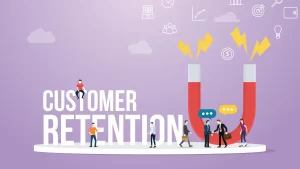Scaling a business is both an exciting and challenging phase in the entrepreneurial journey. With 2025 fast approaching, companies need to be agile, innovative, and ready to adapt to evolving market trends. Business growth is no longer just about increasing revenue-it’s about creating sustainable systems, optimizing resources, and making data-driven decisions that propel your company forward.
In this guide, Biz Grow Daily explores seven proven strategies to scale your business in 2025. These strategies are practical, actionable, and designed to help entrepreneurs stay ahead in an ever-evolving business landscape.
Strategy 1: Embrace Digital Transformation
Digital transformation is no longer optional-it’s essential for business growth. Companies that integrate technology into their core operations enjoy increased efficiency, better customer experiences, and more scalable operations.
Key Steps:
- Automate Processes: Use CRM systems, accounting software, and marketing automation tools to streamline operations.
- Adopt Cloud Solutions: Cloud computing allows for flexibility, remote work capabilities, and scalable infrastructure.
- Leverage AI and Machine Learning: From chatbots to predictive analytics, AI can help optimize decision-making and customer engagement.
Digital transformation enables businesses to respond quickly to market changes, reduce costs, and position themselves for scalable growth.
Strategy 2: Optimize Your Sales and Marketing
Scaling requires reaching more customers efficiently. A well-structured sales and marketing strategy ensures your business attracts and retains the right audience.
Key Steps:
- Targeted Marketing Campaigns: Use segmentation to reach the right audience with personalized messages.
- Sales Funnel Optimization: Streamline your customer journey from awareness to conversion.
- Leverage Social Media and Content Marketing: Engage your audience through blogs, videos, and social media campaigns.
By optimizing sales and marketing efforts, businesses can generate higher revenue without proportional increases in costs.
Strategy 3: Expand Your Product or Service Lines
Diversifying your offerings can open new revenue streams and attract a broader customer base. However, expansion should be strategic and data-driven.
Key Steps:
- Market Research: Identify customer needs and gaps in the market before launching new products.
- Test and Iterate: Launch pilot products or services to assess demand and refine offerings.
- Focus on Quality: Maintain high standards to ensure customer satisfaction and loyalty.
Expanding product lines allows businesses to increase revenue, reduce dependency on a single product, and stay competitive.
Strategy 4: Invest in Talent and Leadership
Your team is your greatest asset. To scale effectively, businesses must invest in both talent acquisition and leadership development.
Key Steps:
- Hire Strategically: Focus on recruiting individuals with skills that complement your growth goals.
- Develop Leadership Programs: Prepare internal talent to take on managerial and strategic roles.
- Foster a Positive Culture: Encourage collaboration, innovation, and continuous learning.
A strong team and capable leadership create a solid foundation for scaling operations while maintaining efficiency and productivity.
Strategy 5: Leverage Data-Driven Decision Making
In 2025, businesses that use data to inform decisions will outperform competitors. Data provides insights into customer behavior, operational efficiency, and market trends.
Key Steps:
- Implement Analytics Tools: Use platforms like Google Analytics, Tableau, or Power BI to track key metrics.
- Monitor KPIs: Regularly assess revenue growth, customer acquisition cost, and retention rates.
- Predictive Analytics: Anticipate market trends and make proactive business decisions.
Data-driven strategies reduce guesswork, minimize risk, and provide actionable insights for scaling effectively.
Strategy 6: Focus on Customer Experience
Customers are the cornerstone of any scalable business. Providing exceptional experiences strengthens loyalty and encourages referrals.
Key Steps:
- Personalize Interactions: Tailor communications and offerings based on customer preferences.
- Collect Feedback: Regularly gather customer feedback and implement improvements.
- Streamline Support: Ensure quick and effective customer service through chatbots, helpdesks, and social media.
A customer-centric approach increases retention, boosts brand reputation, and drives long-term growth.
Strategy 7: Build Strategic Partnerships
Collaborating with other businesses can accelerate growth by providing access to new markets, technologies, and resources.
Key Steps:
- Identify Complementary Partners: Seek partnerships that enhance your offerings without direct competition.
- Negotiate Win-Win Deals: Ensure mutually beneficial agreements to sustain long-term partnerships.
- Leverage Networks: Attend industry events and networking opportunities to build relationships.
Strategic partnerships allow businesses to expand reach, share resources, and innovate faster than going solo.
Conclusion
Scaling a business in 2025 requires more than ambition-it demands a combination of strategy, innovation, and execution. By embracing digital transformation, optimizing sales and marketing, expanding offerings, investing in talent, leveraging data, focusing on customer experience, and building strategic partnerships, your business can achieve sustainable growth.
Biz Grow Daily encourages entrepreneurs to implement these strategies thoughtfully, measure outcomes, and adapt as the market evolves. Scaling isn’t just about growing bigger-it’s about building a resilient, adaptable, and thriving business for the future.
FAQs
What is the best strategy to scale a business quickly?
Combining digital transformation with optimized marketing and sales efforts often leads to the fastest, sustainable growth.
How important is data in business scaling?
Data-driven decisions reduce risk, identify growth opportunities, and allow for better allocation of resources, making it critical for scaling.
Should small businesses focus on partnerships or internal growth first?
Both are important. Internal growth ensures your core business is strong, while partnerships can accelerate expansion and access new markets.
How can I improve customer experience while scaling?
Personalization, fast support, and regular feedback collection help maintain a high level of customer satisfaction during growth.
Is expanding product lines always a good idea?
Only if backed by market research and testing. Expansion without proper strategy can dilute focus and resources.
How do I maintain company culture while scaling rapidly?
Invest in leadership development, clear communication, and fostering collaboration to maintain culture even as the team grows.




